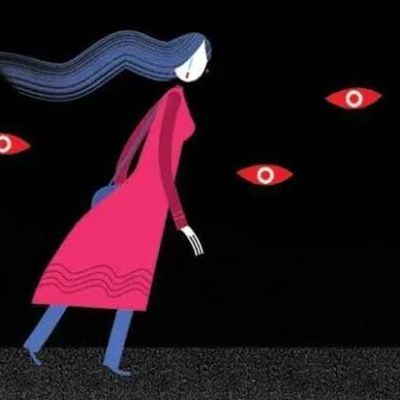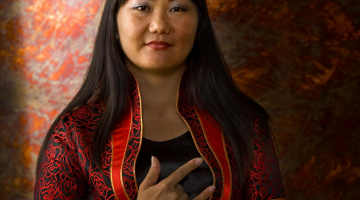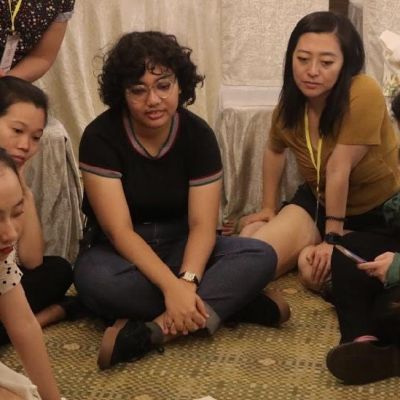Curated Content
This article was originally published here under CC BY-NC-SA 4.0 Genna & Felix by Kate Arthur. Image source: @katearthurartist A university…
The only thing this language achieves (and maybe it is also the goal), is to create enough panic so that women themselves police and restrict their own mobility and whereabouts, and keep themselves away from public spaces whenever possible.
Disabled folks make up the largest “minority” group that includes the most diversity, and anyone can experience or acquire a disability at any point in their life. And yet even in feminist and social justice spaces, ableism persists.
By Kanav Narayan Sahgal December 4, 2019 Posted by Kanav Sahgal Growing up, I always knew I was homosexual. My childhood…
People we refer to as “digisexuals” are turning to advanced technologies, such as robots, virtual reality (VR) environments and feedback devices known as teledildonics, to take the place of human partners.
We need more spaces for marginalized people to express themselves. Although pop culture and mainstream media have yet to feature the diversity and representation we crave, fan fiction can help to fill in those gaps. And that is nothing short of feminist.
Someone called me a policy animal a few years back and I grudgingly agreed that indeed I’m one of those people who does get excited by the idea of influencing policy negotiations and policymaking
Period tracking applications can also inform you about your general reproductive health and also caution you in case of an anomaly with respect to it. As menstruators in our undergraduate years, the primary reason I saw my friends using period trackers were to keep a track of when to carry menstrual products to college or avoid the risks of pregnancy.
By: Nupur Sharma The Hindu. Shohini Ghosh at Lodhi Garden Restaurant, New Delhi. Photo: V.V. Krishnan Over a hearty meal, film…
This post was originally posted here underAttribution-NonCommercial-ShareAlike 4.0 International (CC BY-NC-SA 4.0) . When is the last time that you daydreamed, spending…
Reasons why SRHR is not prioritised—but should be—in climate change policies, strategies, financing, and programmes are because women’s contribution and roles as agents of change are often disregarded due to gender inequality.
As shocking as his request for a nude was, what confused me even more was why would he want nudes from me, a woman who hated her body? Would he appreciate these saggy breasts with their stretch marks? My ever growing thighs and my belly which has body hair on it, wouldn’t he think I’m ugly?
The #MeToo movement gave voice to the existing pandemic of sexual violence globally, especially against women. Sexual violence against women was (and is) being perpetrated in every space–our homes, the streets, and the workplace.
What is unconventional about the depiction of this love, among all the others that have been spoon fed to us via Bollywood, is that this romance between two older people – Nafisa Ali and Dharmendra – is not about stealing the odd glance and simply holding hands.
Biblical scholars, who value abstinence, reject such sexual interpretations, but not modern LGBTQ (lesbian, gay, bisexual, transgender and queer) activists, who have even traced formal same-sex unions in Church liturgy called adelphopoiesis or “brother-making”. We see what we want to see. We allow what we are comfortable with, and what we are mature about. Love is indeed a splendid thing. But sex remains a bad habit.















